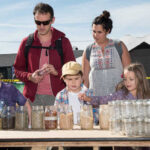by Rachel Binstock, Urban Adamah, Berkeley, CA
Parashat Breishit + Sukkot
Editor’s Note: Welcome to D’varim HaMakom: The JOFEE Fellows Blog! Most weeks throughout the year, you’ll be hearing from the JOFEE Fellows: reflections on their experiences, successful programs they’ve planned and implemented, gleanings from the field, and connections to the weekly Torah portion and what they’ve learned from their experiences with place in their host communities for the year. Views expressed are the author’s and do not necessarily represent Hazon. Be sure to check back weekly!
P.S. Interested in being or hosting a JOFEE Fellow? Applications for cohort two are now open for both prospective fellows and prospective host institutions! Priority Deadline is October 31!
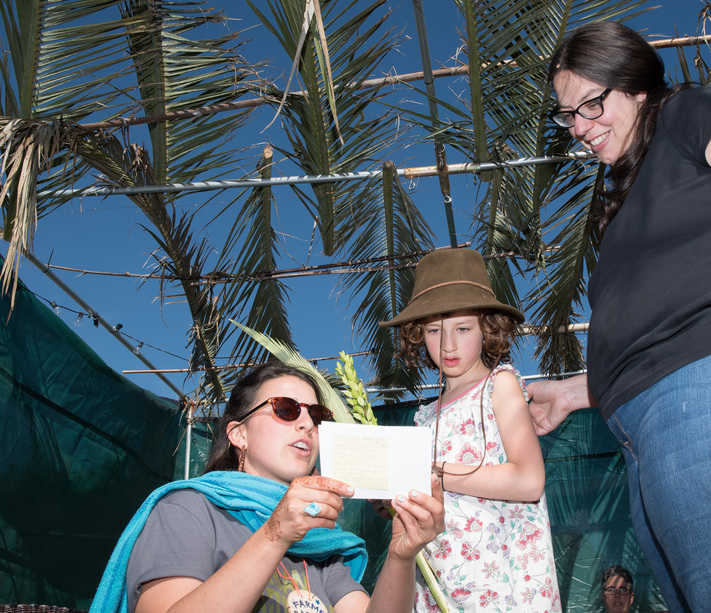
Of all the Jewish holidays, I learn most about trust on Sukkot. Why? you might ask. After the New Year and the Day of Atonement, is not Sukkot the holiday of celebration and happiness? Sukkot is about trust for a few reasons. We build ourselves sukkahs – impermanent booths in which we are commanded to dwell – and in so doing we find ourselves up-rooted. We create a new home susceptible to the elements and porous to the sky. The holiday necessitates a release of control, a faith that we will survive the elements no matter what the weather holds.
As the Festival of Ingathering, Sukkot again reminds us to trust. On this harvest holiday, we are reminded to trust that the earth will provide us with abundance to last us through the cold winter.
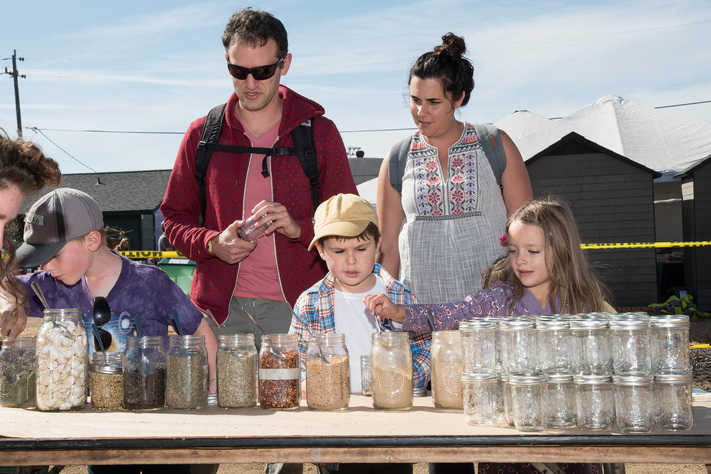
And lastly, the theme of trust surfaces again in another very important way: it is on this very holiday that we begin to pray for rain. We shake the lulav in all directions, beckoning the rains to fall and grace us with their life-giving force. We start reciting the rain prayer in the Amidah so that the rain might come to water our fields all winter in preparation for the new crop cycle to begin in Spring – paving the way for an abundant harvest when next Sukkot comes around.
As a recently new resident and farmer of California, I entered Sukkot with my own prayer for rain. I am suddenly, acutely aware – in a way I imagine my ancestors were too – that without rain there is no life. It hadn’t rained in California since I moved here last spring to start my JOFEE Fellowship placement at Urban Adamah, and it had been a very dry winter even before I arrived. The earth was beyond parched, a new kind of dry, lacking gusto and limited in its ability to provide. But three days of heavy rains finally came right before Sukkot started – and, moments after we had picked up our entire farm and moved it a mile north.
Urban Adamah has been in the process of building and developing a new permanent community center well equipped to host all kinds of guests and gatherings. It is now a space ready to hold radical prayer amongst the garden beds, a sanctuary of living breathing beings amongst the city hardscape of roads and buildings. We couldn’t have asked for a more beautiful welcome to our new home. The rain coated this new (and also very ancient) land in a blessing. It is now a land whose story can once again boast of its purpose: to nourish, to feed, to inspire, and to hold. This land is the new source from which we provide free food for hundreds of folks who identify as in-need every week. It is a space in which families, Jewish and non, can connect to community, to mindfulness, and to the earth.
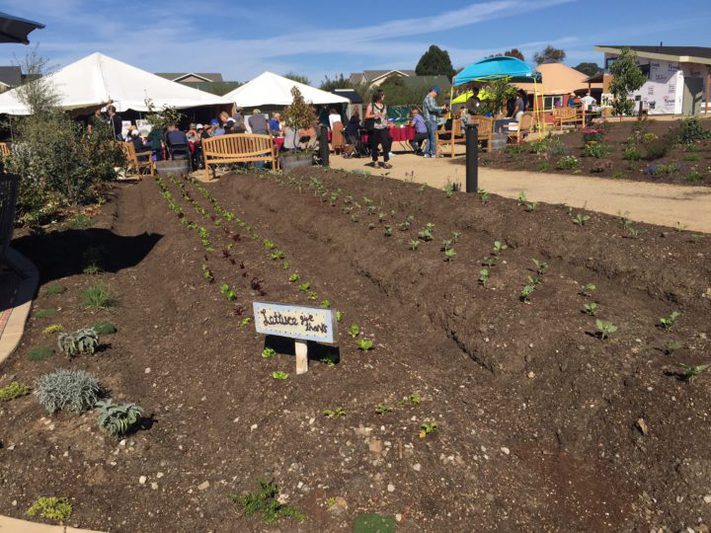
And the rains came just in time. As we prepared to welcome over 500 folks to our new site with our grand opening event – Eat, Pray, Lulav – the skies opened to welcome us home, to water our new baby trees, to fill up our rain swales and to wish us a fruitful and nourishing landing. With the rain’s blessing, it was a true success. The festival included stations like ephemeral art, pita making, pickling, sukkah flag-decorating, Ask-a-Rabbi booth, and more. We learned about native plant species through ceramic art, we rain danced – shaking the lulav with families in the sukkah, and we celebrated, with music and food, our new permanent home on this holiday of ephemerality.
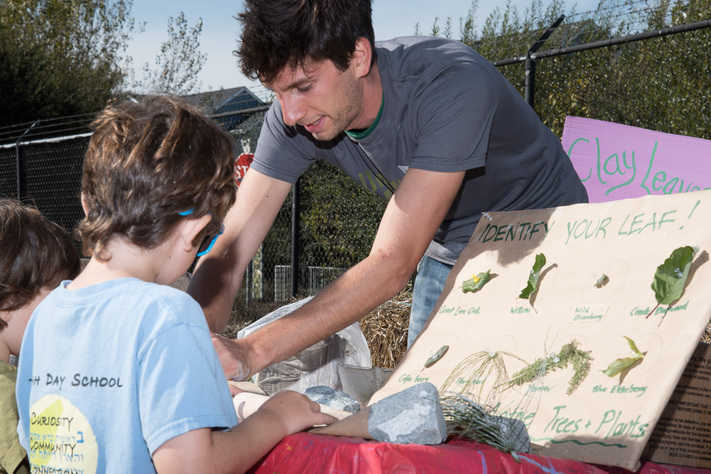
The most amazing part of this moment in time is how our own unfolding story of rain and home is mirrored in the story of this week’s parsha. In Breishit we are given two creation stories. In the first, God creates the world in six days. Water is a big part of that creative process. On Day Two the waters of above and below are separated, on day three water and land are made distinct, and on day five animals of the sea (and sky) are the first beings to be created after plants. But in Genesis chapter two we see an entirely different framing for water. We find that the land is parched, that no life is possible on the earth, because God had not made it rain. And then waters came up from the ground and drenched the surface of the earth. It was only then that God was ready to make life. And the first life God creates is humanity, from the dust of the earth.
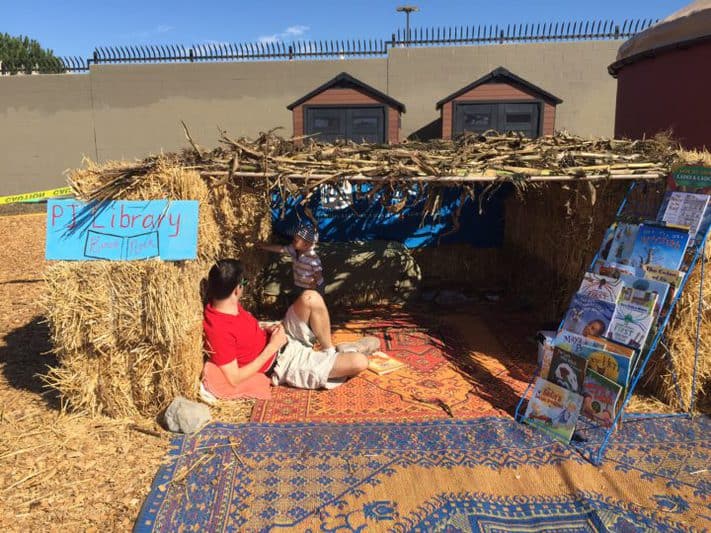
The rain has always been the reason we are able to live. It is what prepares the soil for the shaping and creating of the first human, and it’s therefore part and parcel of our very bodies. Rain is the vector through which body and breadth – sukkah and inhabitant – can dwell together in impermanent unity. And so the coming of the rains bring blessings of possibility, of life, and of home. And with the rain’s blessing on this new community center, we can continue to honor God’s creation. It is on this farm and through our programs that people of all ages fall in love with creation – big and small – and find their way home to themselves, to their community, and to this earth.
So. On the heels of the water-drawing festival day concluding Sukkot, I bless us all with a year of rain in its right time and place; a year of appropriate provisions; and a year dwelling under the wings of trust holding us through the doubt and uncertainty. Let us all find sources of life-giving water to nourish our work and our spirits; to allow our communities, our fields, and our relationships to thrive so that we may reap without a sense of scarcity; and so that we find ourselves willing and ready to share the abundance that always is.
Rachel is a native of Chicago and currently serves as the JOFEE Fellow at Urban Adamah in Berkeley, CA. She loves making Torah come to life on the farm and in the forest with kids of all ages. Read her full bio here.
